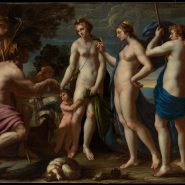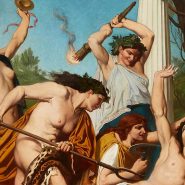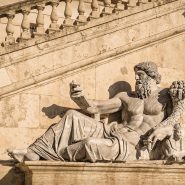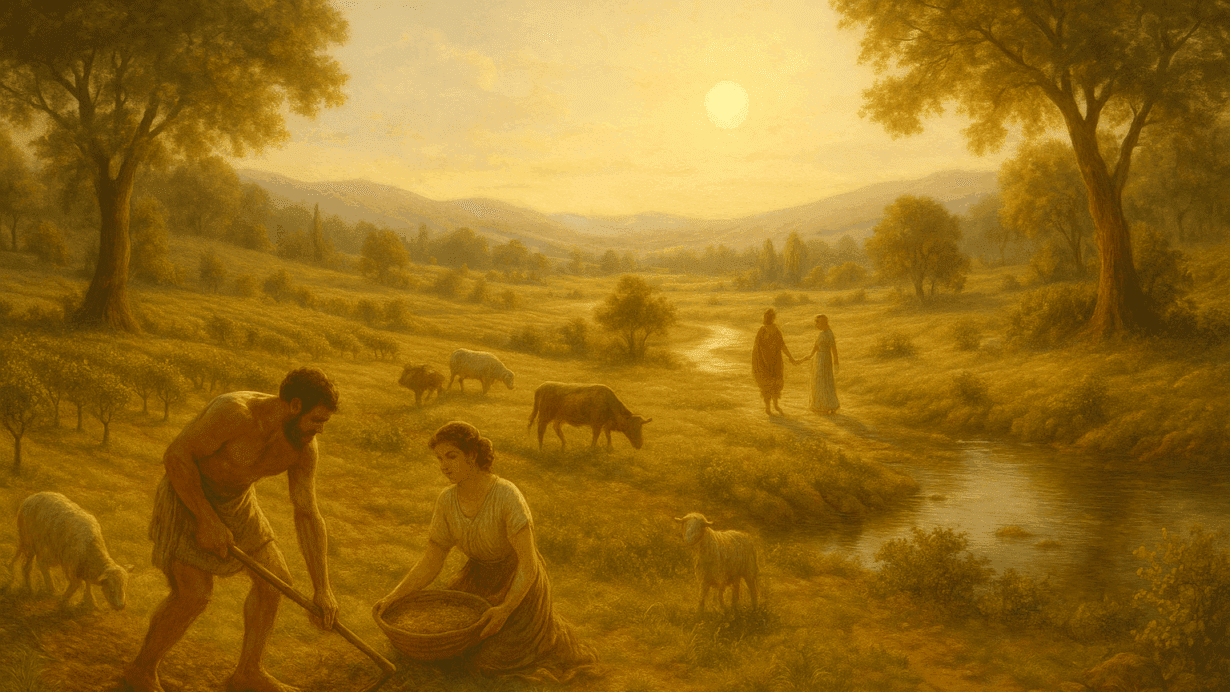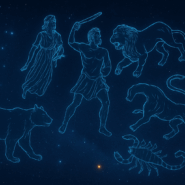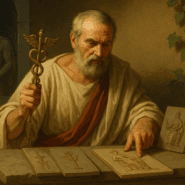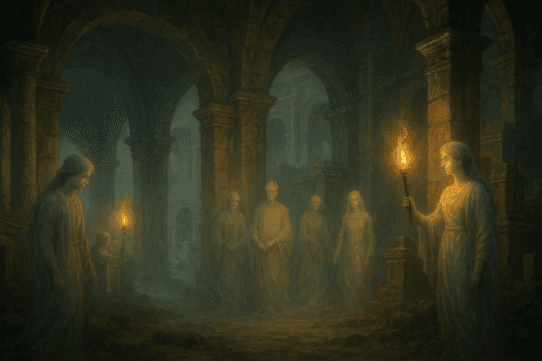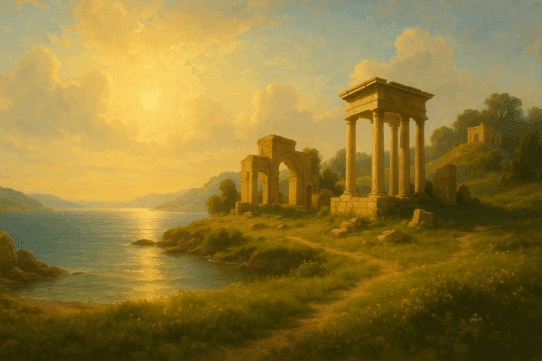QUICK SUMMARY
Saturn’s Golden Age was a mythical era of peace, abundance, and perfect harmony under the rule of Saturn. Romans believed this distant age represented the highest ideal of human life: a world without war, greed, or hierarchy, where nature provided freely and society flourished without effort.
A Time Before Time
Long before Rome rose, long before the struggles of kings and heroes, the world enjoyed a miraculous era known as the Golden Age. Saturn, the ancient god of agriculture and time, ruled over this early world with a gentle hand. Under his guidance, humanity lived simply, peacefully, and in complete alignment with nature.
The Golden Age was not a historical period but a spiritual memory, an imagined perfection at the dawn of creation. Romans believed that this era shaped the deepest values of their culture: order, generosity, and the belief that divine rule once brought harmony to the earth.
The Rule of Saturn
Saturn’s reign stood apart from all others because it required no force, no armies, and no harsh laws. In every version of the story, Saturn governs through wisdom rather than power. He introduces agriculture, teaching humans how to care for land and harvest its gifts. Even so, crops seem to spring from the earth almost effortlessly.
Under Saturn’s rule, there are no social divisions. Free and slave do not exist. Wealth means nothing because everything is shared. Justice is instinctive. Cooperation, rather than competition, forms the foundation of life.
The Romans viewed Saturn as both a protector and a civilizer. His Golden Age became a symbol of the ideal social order: peaceful, productive, and built on mutual respect.
A World Without Struggle
What made the Golden Age so extraordinary was its absence of hardship. The earth offered food without plowing. The climate remained mild year-round. Illness, hunger, and violence were unknown. Even the passage of time seemed gentler, moving in quiet circles rather than grinding forward as it does in the later ages.
People did not wage war or seek conquest. They lived where they pleased, moving freely across a peaceful landscape. Because suffering did not exist, neither did the need for punishment or strict laws. Virtue came naturally to all.
This dreamlike world captured the Roman imagination. The Golden Age became a reminder that the world once operated according to perfect balance.
The End of the Golden Age
Saturn’s peaceful reign eventually came to an end. In many traditions, Jupiter rose to power and took the throne, ushering in a new era defined not by innocence but by responsibility and progress. Humanity became more complex. The earth required labor. Tools, social structures, and laws became necessary.
The fall of the Golden Age was not seen as a failure but a transformation. Romans believed that each age carried its own challenges and virtues. Yet the memory of Saturn’s era lingered, a symbol of what humans could strive toward even in harsher times.
Echoes in Roman Culture
Although the Golden Age was long past, Romans kept its spirit alive in festivals and traditions.
Saturnalia
The most famous echo of the Golden Age was Saturnalia, a winter celebration honoring the old god. During this festival, Romans tried to recreate elements of the perfect era:
- Social roles were temporarily reversed
- Slaves dined with masters
- Gifts were exchanged
- Worry was set aside
- Public joy replaced daily restraint
For several days, Romans stepped back into a world with fewer boundaries, imagining life as it had been under Saturn’s peaceful rule.
Imperial Imagery
Roman emperors also invoked the Golden Age to strengthen their authority. By claiming to restore peace and prosperity, rulers like Augustus suggested that their reigns reflected a return of Saturn’s harmony. Poets such as Virgil used Golden Age imagery to celebrate Rome’s destiny and depict the empire as a revival of ancient perfection.
Philosophical Interpretations
Later Roman thinkers reinterpreted the Golden Age not as a literal time but as a state of moral excellence. Philosophers argued that Saturn’s world represented humanity’s natural goodness before ambition and greed clouded the heart.
Stoic writers used the Golden Age to remind readers that virtue arises from simplicity and alignment with nature, not from wealth or status. In this sense, the ancient myth remained a guide for personal conduct and civic life.
The Enduring Symbol of Saturn’s World
Saturn’s Golden Age endures because it expresses a universal longing: the desire for a peaceful world, governed by fairness and free from fear. For Romans, this vision explained not only the distant past but also the ideals worth preserving in the present.
To imagine the Golden Age is to imagine humanity’s highest potential. It is a reminder that harmony once existed between gods, people, and the natural world. And although the era has passed, its lessons remain central to the Roman understanding of time, morality, and the ever-changing human story.
